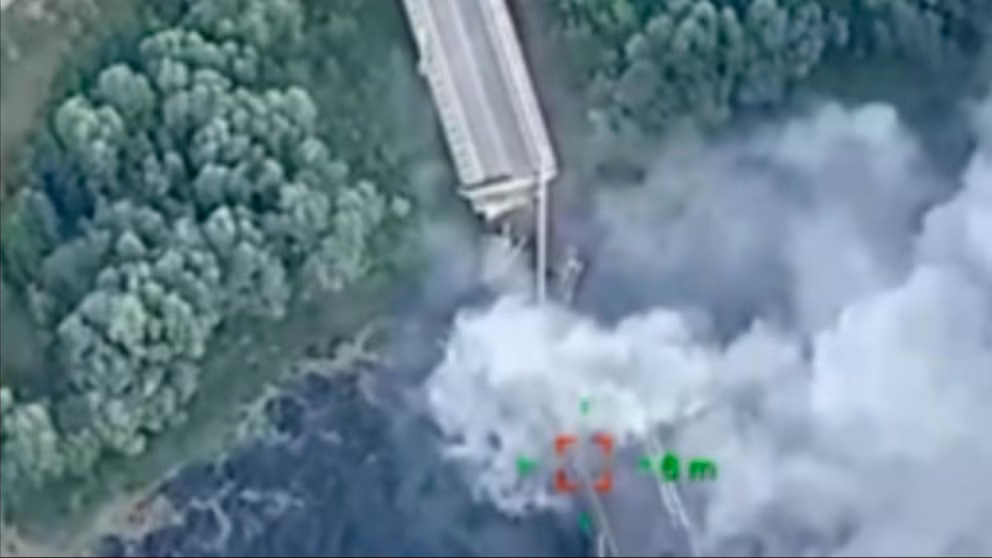Ukrainian forces have escalated their offensive in the Kursk region of Russia by targeting essential transportation routes. This strategy aims to impede Moscow’s ability to resupply its troops and establish a protective buffer zone between Ukraine and Russia.
The Ukrainian military has reportedly damaged three key bridges in the area, with the latest strike hitting a bridge near the village of Karyzh over the Seim River. These disruptions are intended to obstruct the movement of Russian heavy machinery and complicate the logistical support for Russian troops.
The Ukrainian strikes have specifically targeted critical infrastructure, causing significant damage to bridges in the Kursk region. The attacks on these bridges, which include those in Zvannoye and Glushkovo, have hindered Russia’s ability to transport military equipment across the river.

Ukrainian Forces Hit Major Bridges in Kursk, Aiming to Disrupt Russian Resupply and Defense
This has potentially impacted Russia’s operational capabilities, although the full extent of the disruption on Russian troop movements and redeployments remains uncertain.
In response to the Ukrainian offensive, Russia has redeployed approximately 5,000 troops from the Donetsk region to Kursk. Despite President Vladimir Putin’s efforts to counter the Ukrainian advance, reports indicate that Ukrainian forces continue to make gains in the region.
The Institute for the Study of War has noted that while Russia has managed to slow down Ukrainian progress, completely halting it will require a substantial increase in Russian resources and manpower.
President Volodymyr Zelenskyy has framed the Kursk operation as part of a broader strategy to undermine Russia’s war potential. By creating a buffer zone on Russian soil, Ukraine aims to pressure Moscow into a defensive stance and reduce its overall war capabilities. Simultaneously, Ukraine is preparing for continued Russian advances in the Donetsk region, where heavy fighting is anticipated around the city of Pokrovsk.
In addition to the Kursk operation, Ukraine has been targeting other strategic Russian assets. Recent reports reveal strikes on an oil depot in Rostov Oblast and potential explosions along the Trans-Siberian railway line.
These actions reflect Ukraine’s broader strategy to disrupt key Russian infrastructure that supports the war effort. Despite these aggressive tactics, Moscow has indicated it is not ready to enter peace negotiations, according to recent statements from a Putin aide.
